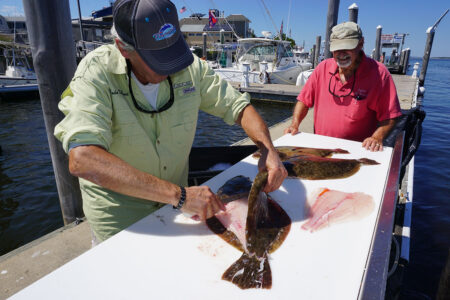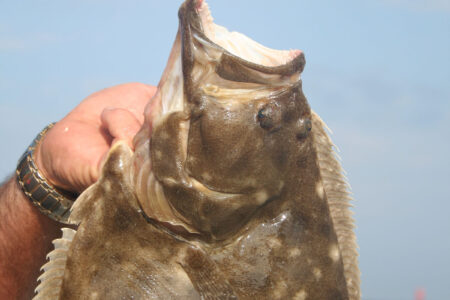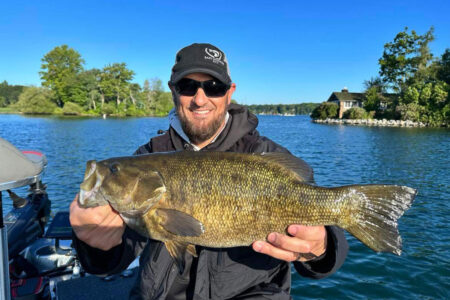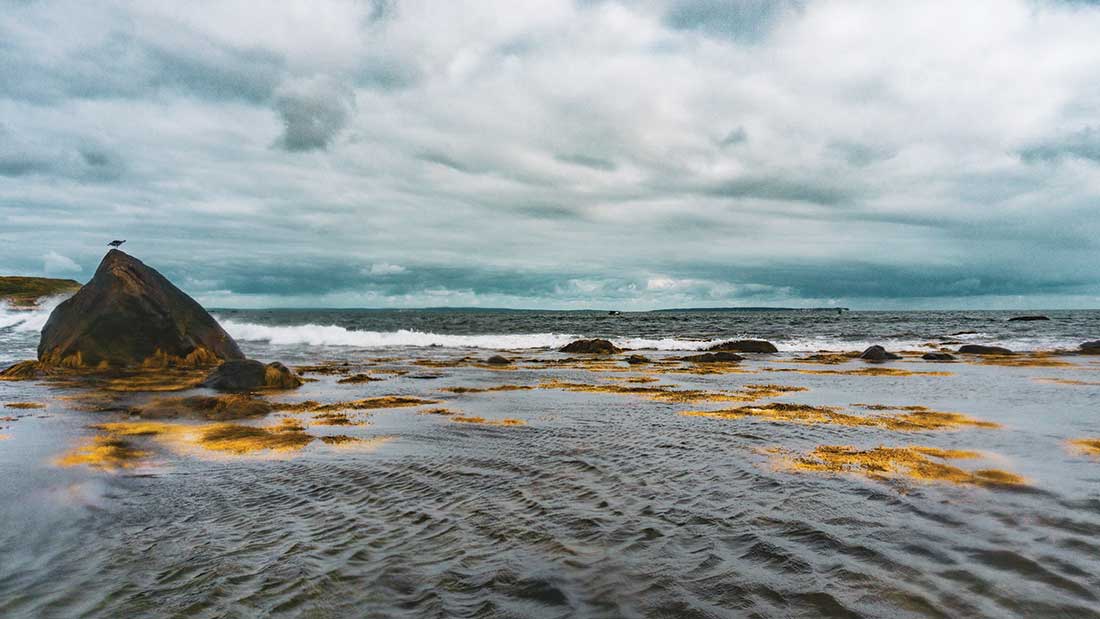
When it comes to landing your personal best, you can never start too early.
We’re in the grip of winter right now, and it’s one of the best times of year to think about your goals for the up-coming season. Now is the time to make a plan, before getting distracted by the spring migration.
Along these lines, I have a little thought experiment for you. I want you to think about one of your best spots. Imagine where you stand, and how you fish it. Build a mental picture in your head of what you look like casting your plug, bait, or fly into whatever structure you’re targeting. Now, I want you to think about hooking, fighting, and landing a 70-pound striped bass. It’s something every surf angler dreams of, but what if it actually happens? Do you know which direction it’s likely to go? Have you mapped out every obstruction it could get caught on during its initial powerful run? How about on the way in during the retrieve? Once you get it close, do you know how you can safely get yourself and this huge animal to a point where you can actually grab it? How about if it’s windy? Or what if there’s an extreme moon tide and the currents are stronger than normal? What if your line becomes burred from a rock, can you play the fish more easily and still land it? What if you have to chase it down the shore, how will that work? These are just a few of the dozens—if not hundreds—of factors that you need to be aware of when trying to land the fish of a lifetime.
It’s amazing how you can feel prepared when you’re catching smaller fish, but when you finally actually hook a giant everything can go right out the window. The first fish I caught over 40 pounds I was very lucky to land. I had never taken the time to really think about what it would be like. When I hooked it, I panicked and forced the fish through boulders I should have worked around. My braid got all frayed from the fight, and when I saw the big girl, I freaked out and locked the drag and tried to just drag her onto shore, snapping the line. Then, when I ran down to get her in the wash (almost blacking out from the stress of thinking I was going to lose her) I fell over in strong waves and almost lost my rod. Finally, I simply grabbed the broken line and dragged the fish to shore, slicing my hand on the braid. Once I had her high-and-dry, I also quickly realized I was not prepared to document the fish as a catch-and-release-only angler, and now only have extremely blurry and poorly composed photos of this special fish. And, in an effort to get what crummy shots I did, I was also being a poor steward of the fishery, and fully admit I did not release the fish in the best possible shape.
That night changed my entire attitude about how I prepare for fishing for large fish, and I vowed to never be unprepared again. Nothing you do while actually fishing matters if you botch the landing. The best gear, the most expensive plugs, and the fishiest spots don’t mean anything if you aren’t prepared mentally.
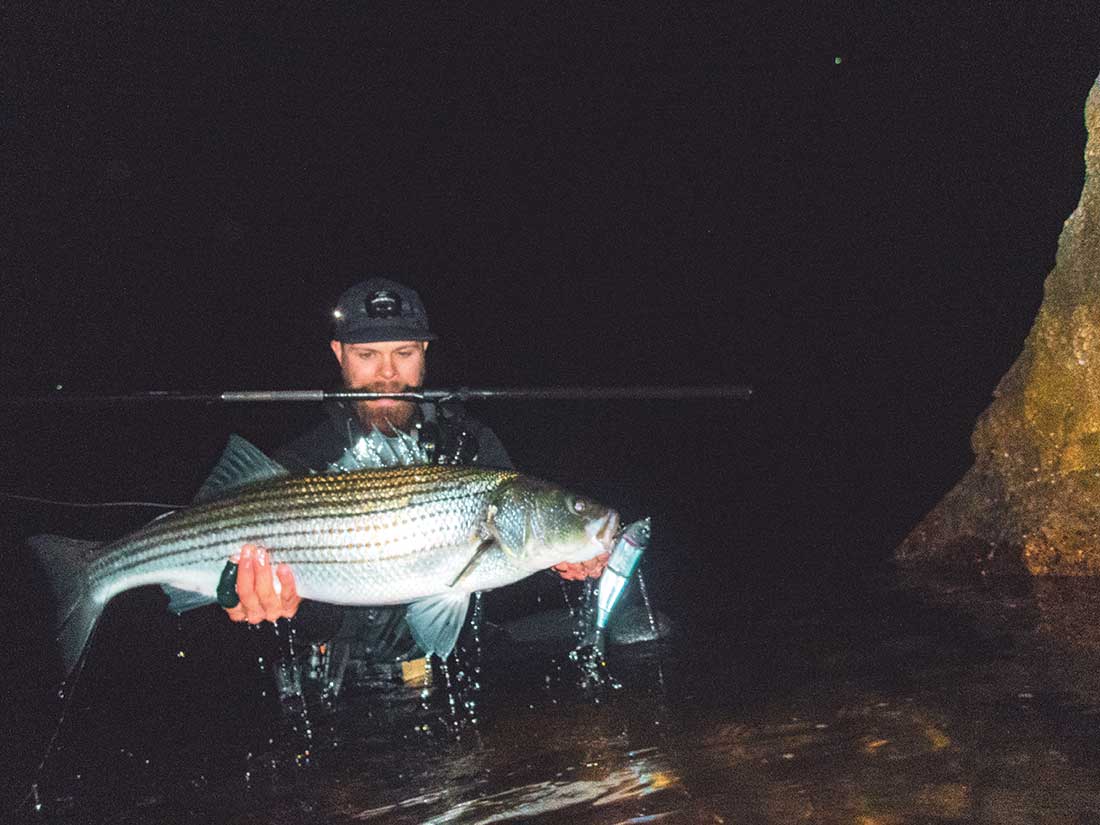
Mentally Prepare Now
I think one of the steps often overlooked in landing a trophy-sized fish actually happens long before you’ve even started fishing. It starts in your head and can be done at home. Athletes of all sport-disciplines practice a mental technique called visualization. Visualization begins with the athlete creating the whole game or race, from start to finish, in their head prior to it occurring. They first take the time to envision their best case performance, reinforcing what their goals are and how they will accomplish them. Next, the athlete uses this time to prepare themselves for the unexpected. Significant scientific research has shown that this is a powerful tool in helping athletes attain their goals, and they can actually activate the same neurological pathways by just thinking about competing as when they’re actually doing it.
I believe this can be easily and effectively applied to fishing as well. I encourage you to sit down on one of these cold, dark nights in your easy chair—maybe with your drink of choice in hand—close your eyes and visualize precisely every detail you can about each of your surf fishing spots and the entire process of catching and landing a giant surf striper. Go through all the steps and think about how it’s all going to work and fit together. Try to imagine how you’re going to do everything from putting on the plug to fighting the fish to the last critical moment before you grab the leader. Identify contingencies for any problems that may arise, and think through ways to negate them. There is no penalty for going extreme with this, take even the most bizarre possibilities seriously. Other than a 50-foot tsunami wave rolling in, or maybe an alien ship abducting you in the middle of fighting the fish, you can let your imagination run wild. Avoid the mindset of “oh, but that will never happen” because you’d be surprised how often “it” does. For example, what if a boat really does come flying in at night and cross your line? If you’ve thought about how you can shove your rod far under the water, or lay it flat on the sand, you just might land the fish, but if you haven’t, then during the fight you might be too overwhelmed to think clearly and respond accordingly. Essentially, visualization preparation done ahead of time will ensure you are not surprised by any step in the process. Even if you only spend 10 minutes preparing, I guarantee you’ll be more confident and prepared.
Further, I encourage you to think about how you’re going to feel at the time. We all have different levels of emotional response, and some anglers do not have difficulty staying stoic and not losing their nerve, even while fighting a personal best. For others, like myself, that is more difficult. Don’t play tough guy, but instead think about how you’ll actually react. I encourage you to really embrace how excited, stressed, or anxious you will be at the time, and then think about how you’re going to decrease this response. This is especially true if you’re fishing a string of tides and are physically worn out and sleep-deprived. Your goal should be to be as Zen as possible, staying totally focused, and completely logical. Try to get your emotion out of it, and just get the work done. Metaphorically, I suggest going full emotion-less Terminator robot. One way I do this is by purposely being a little cynical every time I hook a potentially large fish. I try to tamp down my expectations before I even see it. Regardless of what works for you, to come up with a mechanism you will have had to think about how you’re going to react before the moment ever comes.
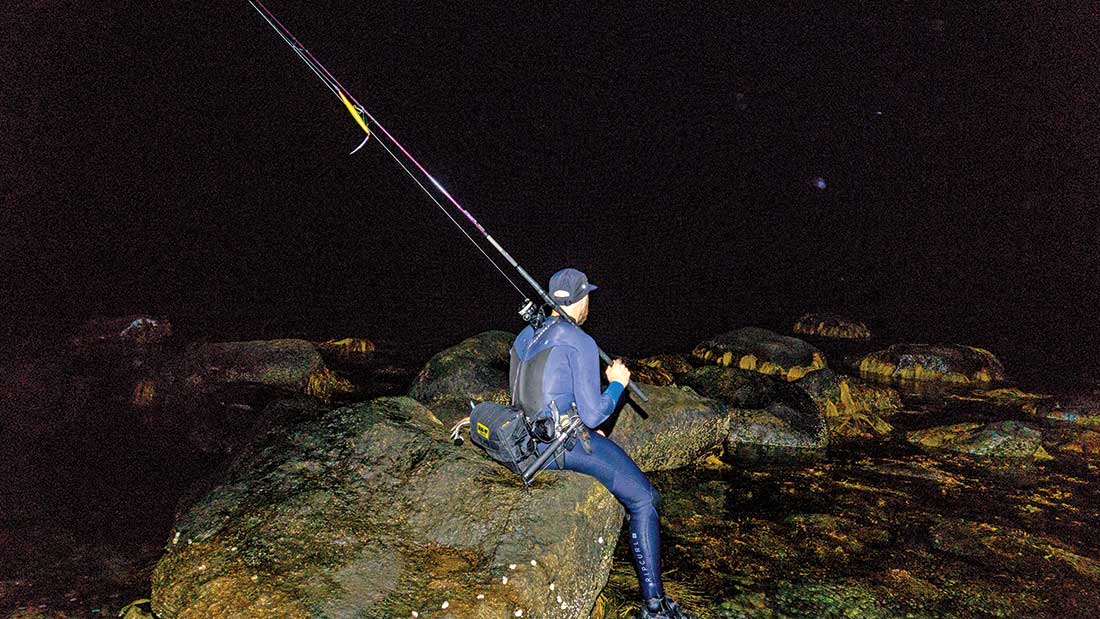
Never Wing It
Finally, one last tip: don’t ever just leave it up to luck. Obvious perhaps, but let me challenge you again. Have you really thought about how you’ll land that mythical 70-pounder? I have heard anglers say things like “well, if that happens I’ll just deal with it” or “it’ll probably never happen, but if it does I’ll just figure it out.” This is a ridiculous mindset, and these anglers will almost certainly lose. If you don’t think you can, or don’t know how you will land a big fish from the spot you’re fishing, then why are you fishing there? Hooking the fish doesn’t matter; landing it is what counts. This has been something I have had to learn the hard way. Falling off unstable boulders repeatedly while trying to hookset, breaking fish off because I couldn’t get them past a particular boulder, and losing fish to big swells over and over are just some of the ways I have paid for not doing my due diligence.
I will also mention this goes triply for releasing fish. While a topic for a different article, I urge you to also think about how you’re going to release a big fish if you catch one far in advance of it actually occurring. Throwing or dropping fish of any size from a height or not being able to revive them in the water safely is a death sentence, but for big fish, it’s even more so. And we need those big, breeder-size fish now more than ever.
